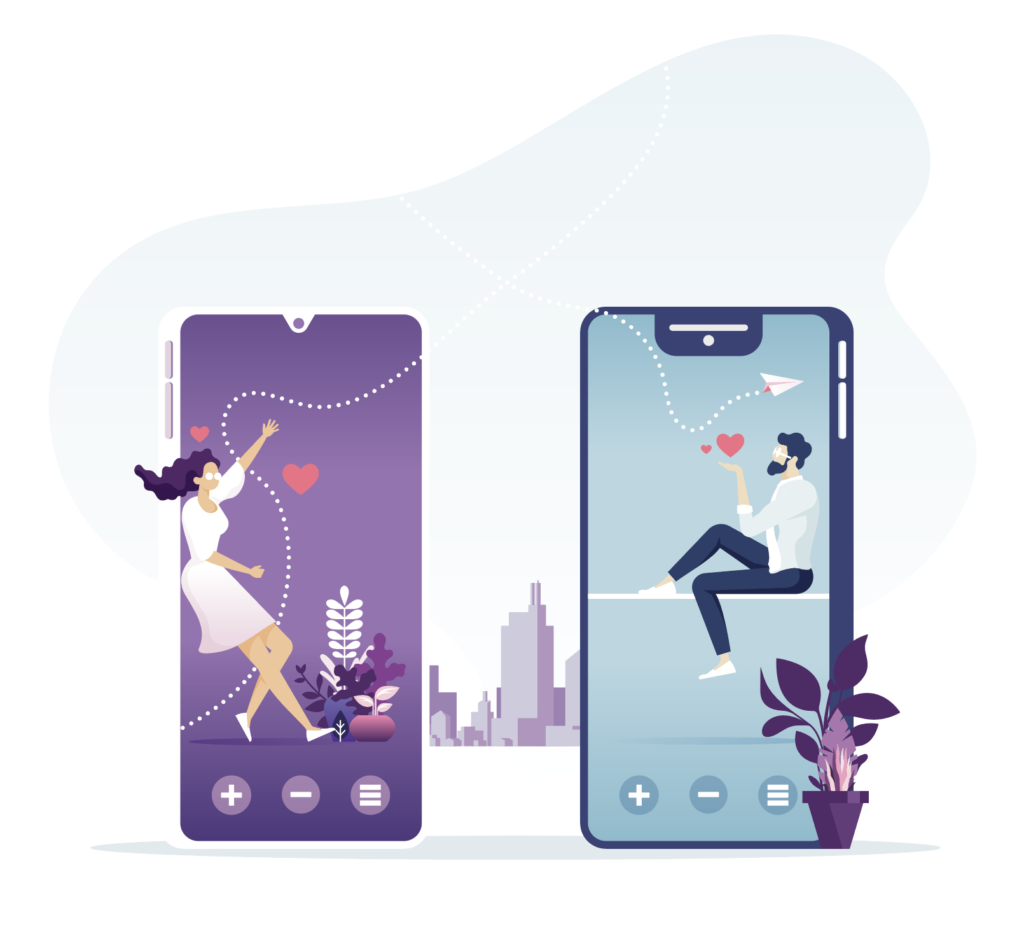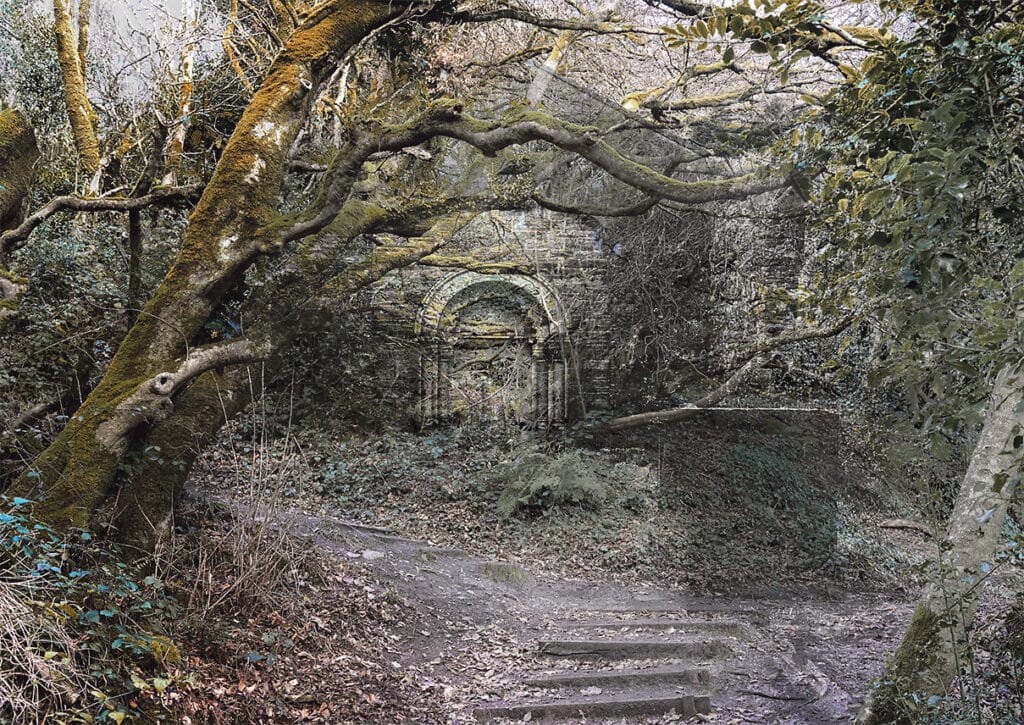With more and more individuals turning to online dating, it has become very much the norm and, although it has its challenges, with over 300 million people worldwide now using dating apps, experts are predicting that within just a few years, 50 per cent of relationships will have begun this way. An assistant professor in Psychotherapy at DCU, Dr Ray O’Neill also works in private practice in Dublin and Beara. After leaving a longterm relationship in his early forties, Ray went on to meet his own husband online. Chatting to Mary O’Brien, he gives some insight into the ‘minefield’ that online dating can be and explains why going into it with hope in your heart but resilience in your spirit will give you a better chance at making a good match and meeting ‘the one’.
According to Ray, while it is important to be resilient when taking this approach to dating, it’s just as important to know when to step back from it to recover and build yourself back up before going online again.
“There is no doubt that it is a battlefield,” says Ray “a place where you will get frustrated, you will get disappointed, you will get ignored and you will get hurt.”
Research is showing that those who tend to be most successful on dating apps are those who are new to the experience.
“It’s the people who go into it with some degree of naivety or enthusiasm or just determination or a combination of all three and who determine to just be themselves who tend to be successful online,” shares Ray.
“If you’ve been doing it for too long without a break and unsuccessfully, it’s probably because you are a bit jaded and burnt out and after falling into using cliches, monosyllabic answers, emojis; your response pace has also perhaps slowed.
“There will be good dates and bad dates, there will be good experiences and bad experiences; it’s about keeping yourself positive because positivity is what people will find most attractive in you.”
He suggests having a wing person to help deal with the disappointments and give encouragement when needed. “Friends who meet you with a degree of hope rather than a degree of judgement are very important to have by your side.
“It’s easy to get so caught up in it that you can’t see the wood for the trees. We either shut down too quickly and start seeing red flags where there might be none or we don’t see red flags where there are red flags and that’s where having that other person who offers encouragement, support and another perspective, is really important.”
It’s also advisable not to pin all your hopes on one person.
“It is a lottery so the more lines you put in, the better your odds are,” stresses Ray “and that’s why I would certainly encourage people to multi-date and not get fixated on one person: If that person actually turns up in real life and you have a few nice dates, then you can think about making a commitment.”
“Rooting out the time wasters will always be a challenge. ‘You may find that they will sexualise the conversation quite quickly without even establishing if you are up for or into that,” shares Ray. “They won’t tell you much about themselves and, if they do, it will be unrealistic. They might also give abrupt answers or just answer with an emoji and be evasive about details.
“I find it so ironic that in a world where we have so many means through which to communicate, that our communication skills have collapsed. At the risk of sounding like a grumpy old man, an emoji just doesn’t cut it; not for communication purposes and particularly in dating!”
“You need to ask questions that invite full answers: If you are getting full answers, then that person is interested but if someone isn’t interested in spending three minutes writing a sentence, they are not going to be interested in a relationship and, if they answer with an emoji, then probably that’s what the sex will be like too, and I don’t mean ‘smiley face’!
“If you value yourself as somebody who deserves a romantic life, a personal life, a sexual life, then don’t sell yourself short. Honestly, if someone can’t answer a question like ‘what’s your favourite film?’ you are not going to be able to negotiate the struggles of paying energy bills if you’re living together in six years time!”
Finding a good match is always going to be a gamble so Ray recommends gathering as much data as possible before making the decision to go on that first date. Always keep in mind that what you’re looking for are responses and not just reactions.
Having a brief phonecall before the first date is advisable. “It gives you a chance to asses that they are a real person but also to gather some data around their tone of voice, how they speak, what they speak about and so on,” explains Ray.
Keep it casual for the first meet-up. “No longer than between 25 and 45 minutes over a cup of coffee is a good guideline,” says Ray. “It can be hard to keep to it, especially if people have travelled a good distance, but, a bit like Christmas, it’s the anticipation that is the best part, the date itself always tends to be anti-climatic.
“Desire needs space and time to thrive,” he continues. “It’s important not to jump into bed with someone just because you feel you have an instant connection. There is always an element of fantasy to desire and it’s in the follow-up that this fantasy gets a chance to merge with reality.”
While over-sexualising the conversation or bringing up previous relationships is never a good idea on a first date, Ray says it’s important not to be afraid of stepping into intimate or personal territory. “You can approach it by saying, ‘I hope it’s ok to ask?’ or ‘you don’t have to answer this question but I wondered if?” or “maybe this is too much information but…’”.
For it to happen, a second date calls for curiosity and engagement on both sides. “Ask yourself: ‘Did they express curiosity about something in your life?’ ‘Did they remember details about your life and ask follow-up questions?’”
If key values and principles are crossed, compromised or unappreciated, then there should not be a second date. In this instance your wing person can be called on for their insight.
Terms such as ghosting, love bombing and catfishing are just a few that you need to familiarise yourself with in navigating this online territory.
“It used to take effort to ignore someone,” says Ray. “Online now makes it all too easy for someone to just step away and ‘ghost’ you.”
While there is bound to be hurt, Ray’s advice is to keep in mind at all times that this is a lottery, it’s part of the game and ‘you’ deserve to find someone.”
Love bombing, where someone demonstrates excessive attention very early on, bombarding or harassing you with compliments, is something else to be wary of.
Love bombing can also be a warning sign of a cat fisher, someone with a fake online profile, usually looking to extort money.
“‘What’s your favourite film?’ or ‘what book did you enjoy?’ or ‘have you seen Bad Sisters and what did you make of it?’ are all great questions that just allow a little bit of personality shine through, but ‘what was your most traumatic moment?’ or ‘I’ve had a huge fight with my daughter and she’s not talking to me because I owe her €500’ are definite no-no’s!” explains Ray.
“For some people catfishing is about power but the reality is that there is literally an industry built around it.”
People go online to date for all sorts of reasons – looking for sex, out of curiosity, to find friendship or a longterrn relationship or to just waste time – and it’s easy to get led astray in a world where a book is so often judged by its cover.
“It’s good to have a multi-pronged approach and not to forget to go out into the real world,” advises Ray. “Whatever about socialising in pubs and clubs, joining voluntary groups or organisations that you have a passion for are really important. It isn’t necessarily that you will meet someone who you want to date but that you will meet someone who will know someone who might know someone who you may want to date!”
After becoming single in his forties when his relationship with a longterm partner broke down, Ray, now 51, found himself entering the world of online dating using a benchmark learned from experience. “The sudden death of my mother just reconfigured my life,” he shares. “I realised that what I wanted from a partner was someone who would hold my hand, give me a hug or just be there beside me.”
“Being older and a little bit wiser, I can share with you that kindness and generosity are much more attractive qualities in a person than physical appearance,” says Ray.
“All of us age, our weight changes, our hair changes, our skin changes; you have to look for something that’s more durable than that; and so really look to see is there a connection from within, within you and within them…that’s when a relationship starts formulating.
“We are looking to walk with someone and for someone to walk with us. It doesn’t mean you have to carry each other, it doesn’t mean you have to hold hands all the time, just that fundamentally you are going in the same direction.”





